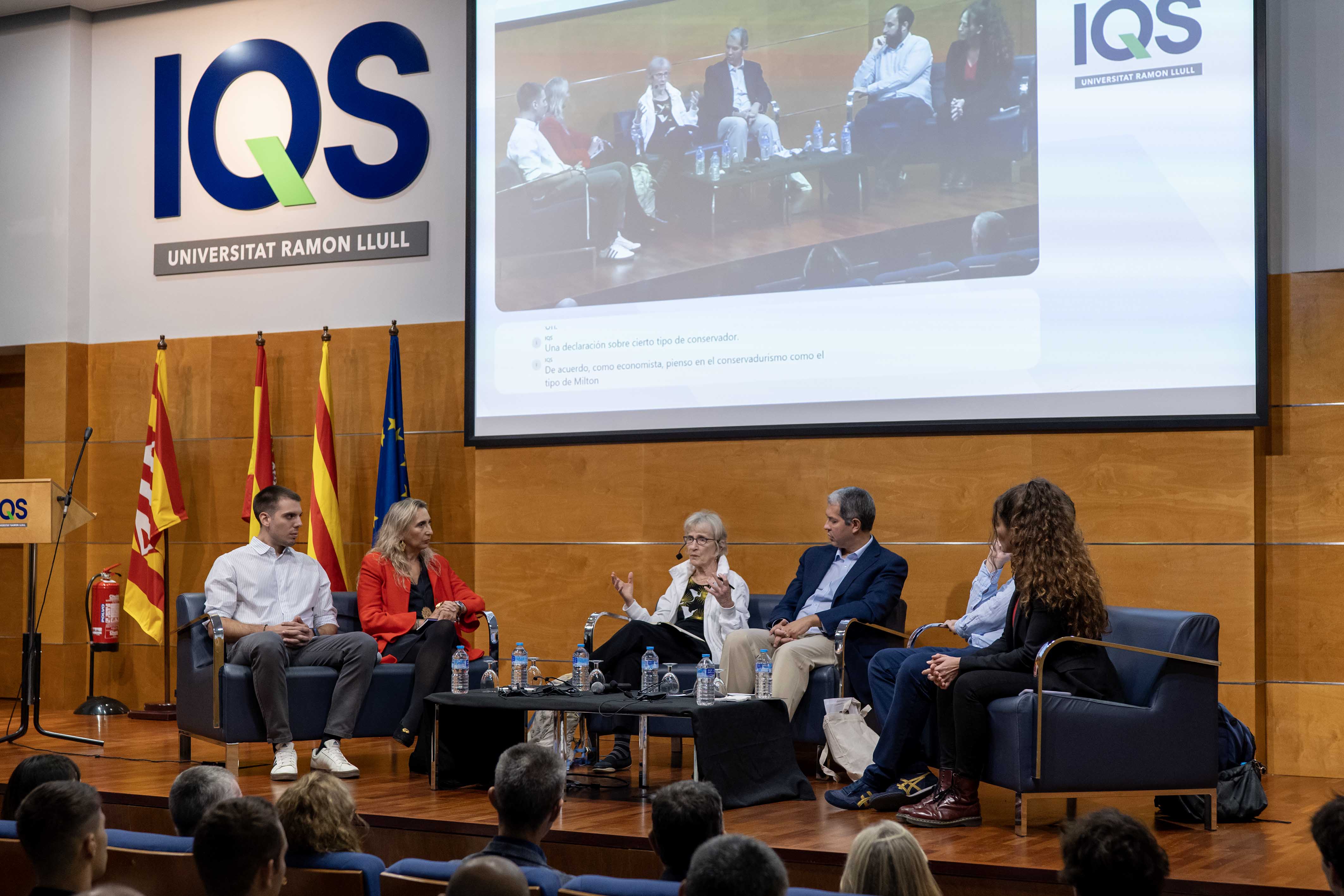On 14 October, IQS inaugurated the IQS Harvard Talks series with an exceptional guest: Claudia Goldin, Professor of Economics at Harvard University and recipient of the 2023 Nobel Prize in Economics for her research on the role of women in the labour market.
Held in a roundtable format with an open Q&A session, the event marked the beginning of an initiative aimed at fostering dialogue between international thought leaders and the academic and business communities on the major social and economic challenges of our time.
Nobel Laureate Claudia Goldin inaugurates the IQS Harvard Talks series with a conversation on gender equality and birth rates

Female autonomy at the heart of social change
Claudia Goldin, one of the most influential economists in the world and the first woman to receive tenure in Harvard’s Department of Economics, discussed the connections between gender equality, declining birth rates, and transformations in the nature of work.
The Nobel Laureate emphasized that the drop in birth rates is a global and long-term phenomenon linked to women’s educational and professional advancement.“It’s hard to imagine something happening everywhere without a common factor, yet it’s also difficult to pinpoint exactly what it is. What all countries share, however, is the progress of female autonomy and women’s access to greater educational and professional opportunities,” Goldin stated.
Generational mismatches and transformations in work
During the conversation, Goldin highlighted that the economic and social transformations over recent decades have produced a deep generational mismatch, especially regarding the role of women in society and in the labour market.
In countries that have undergone rapid development, such as South Korea or certain countries in Southern Europe, changes in education, social mobility, and life expectation have been so rapid that differences between parents, children, and grandparents are immense.
According to Goldin, young women have achieved unprecedented levels of freedom and autonomy, but family and workplace structures have not always evolved at the same pace.
“Women in recent generations have gained tremendous freedom. Men have too, but often feel that adapting to this new world means giving something up.
This imbalance between what men are willing to give up and what women need to fully participate in modern life helps explain why birth rates are so low,” she noted.
For Goldin, the decline in birth rates is not driven solely by economic factors but also by a lack of social adaptation. In her view, women in many countries nowadays are freer, better educated, and more independent than ever before, but if institutions and personal relationships fail to keep pace with that change, the decision to have children is postponed or simply never happens.
Goldin also addressed the role of the labour market in this dynamic. She explained that in many economies, what she has dubbed “greedy jobs” — those requiring total availability and rewarding long hours and constant dedication — create a dilemma for couples with children: only one partner can take on such a role if they hope to maintain family balance.
In most cases, women are the ones who choose more flexible jobs, which contributes to the persistence of the gender pay gap and influences decisions about having children.
“As long as the most valued jobs continue to reward extreme dedication and penalize flexibility, it will be difficult to achieve true equality and reverse low birth rates,” Goldin remarked.
A shared balance between family, work, and wellbeing
In her closing remarks, the Nobel Laureate stressed that achieving a balance between family, work, and wellbeing depends not only on public policies but also on the involvement of the private sector and individuals themselves.
“The stability of our societies depends not only on public policies but also on how businesses and individuals balance work, family, and wellbeing,” she concluded.
The IQS Harvard Talks series was created to promote dialogue between international leaders and the academic and business communities regarding the leading social and economic challenges of the 21st century.









